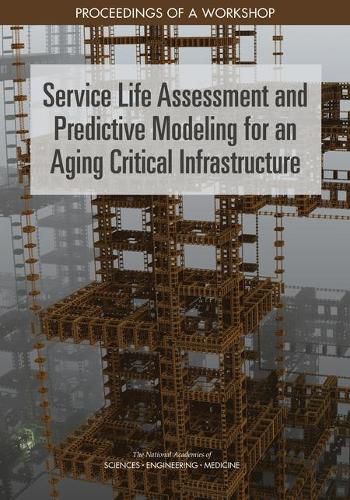Readings Newsletter
Become a Readings Member to make your shopping experience even easier.
Sign in or sign up for free!
You’re not far away from qualifying for FREE standard shipping within Australia
You’ve qualified for FREE standard shipping within Australia
The cart is loading…






The Defense Materials Manufacturing and Infrastructure standing and planning committee of the National Academies of Sciences, Engineering, and Medicine convened a workshop on May 19-20, 2016, to discuss the value of collaboration between the materials and civil engineering communities in addressing the following problem: People and equipment are continuously monitored through multiple organizations and instruments, but the physical infrastructure where they live, train, and deploy receives little attention until it fails or is shown to be inadequate. The workshop was organized into three sessions: (1) highway infrastructure, (2) waterways infrastructure, and (3) railways infrastructure. Within these three sessions, individual speakers gave presentations on technical, functional, and economic paradigms and answered questions from workshop participants. Following these sessions, a panel discussion was held to discuss existing gaps as well as ways to overcome challenges. This publication summarizes the presentations and discussion of the workshop.
$9.00 standard shipping within Australia
FREE standard shipping within Australia for orders over $100.00
Express & International shipping calculated at checkout
The Defense Materials Manufacturing and Infrastructure standing and planning committee of the National Academies of Sciences, Engineering, and Medicine convened a workshop on May 19-20, 2016, to discuss the value of collaboration between the materials and civil engineering communities in addressing the following problem: People and equipment are continuously monitored through multiple organizations and instruments, but the physical infrastructure where they live, train, and deploy receives little attention until it fails or is shown to be inadequate. The workshop was organized into three sessions: (1) highway infrastructure, (2) waterways infrastructure, and (3) railways infrastructure. Within these three sessions, individual speakers gave presentations on technical, functional, and economic paradigms and answered questions from workshop participants. Following these sessions, a panel discussion was held to discuss existing gaps as well as ways to overcome challenges. This publication summarizes the presentations and discussion of the workshop.